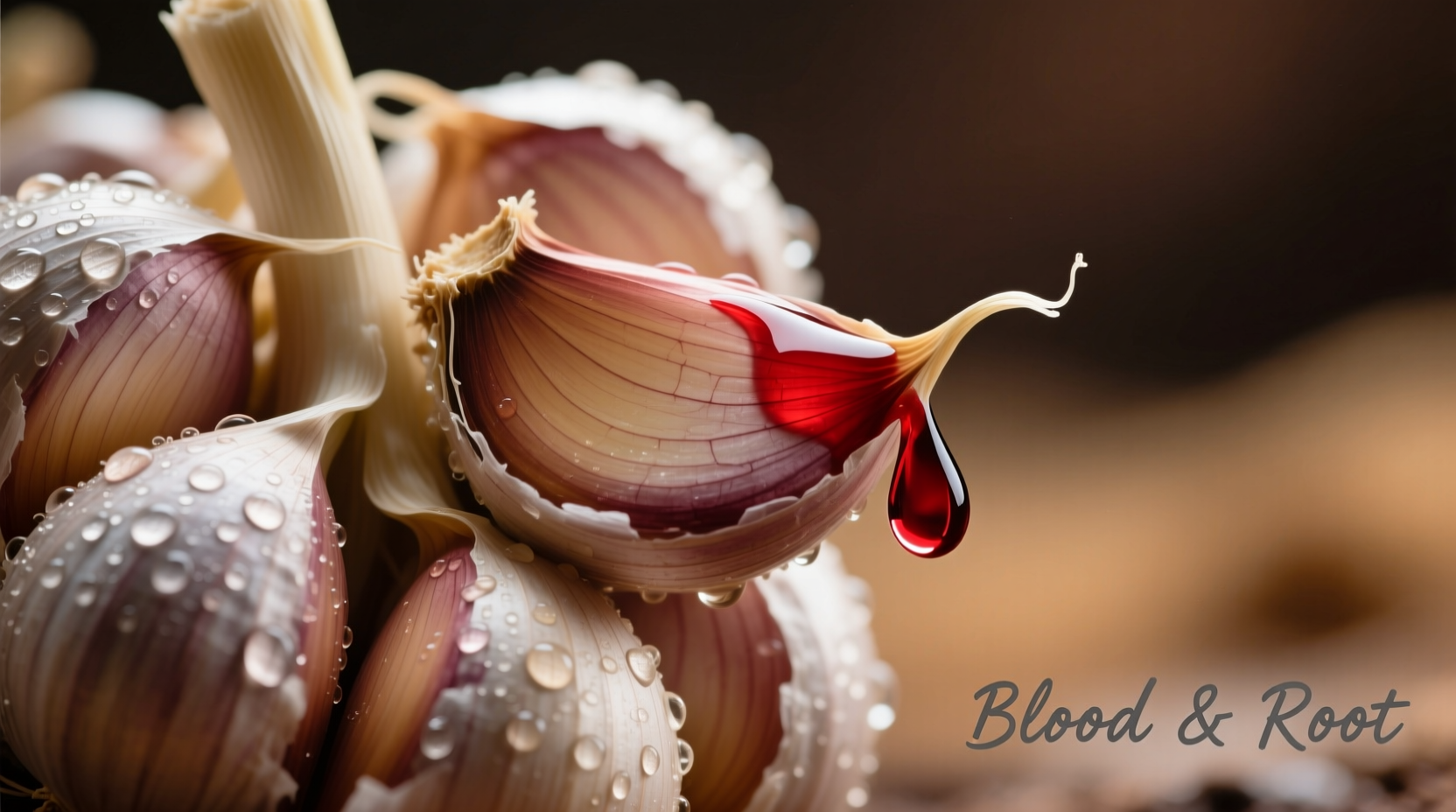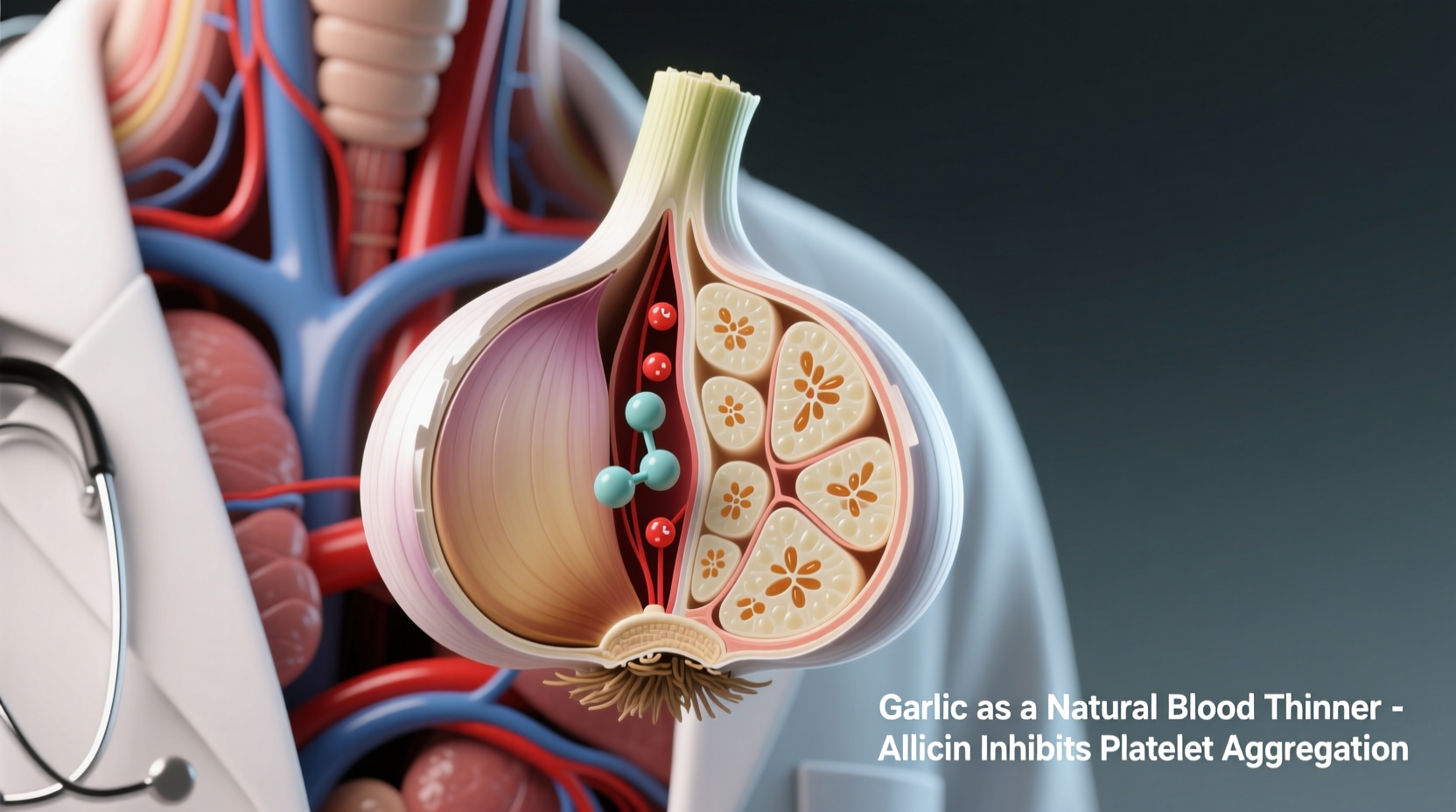Understanding garlic's role as a natural blood thinner requires separating scientific facts from common misconceptions. While garlic won't replace prescription medications, its antiplatelet effects are well-documented in clinical research and can significantly impact your health management strategy when properly understood.
The Science Behind Garlic's Blood-Thinning Properties
When you crush or chop fresh garlic, an enzyme called alliinase converts alliin into allicin—the compound responsible for garlic's distinctive aroma. Allicin then breaks down into various organosulfur compounds, with ajoene being the primary agent affecting blood coagulation.
According to research published in Thrombosis Research, ajoene works by:
- Inhibiting platelet aggregation (clumping)
- Interfering with fibrinogen binding to platelets
- Reducing thromboxane production, which promotes clotting
These mechanisms make garlic a mild natural anticoagulant, though significantly weaker than prescription medications. The National Center for Complementary and Integrative Health (NCCIH) confirms garlic's antiplatelet effects but emphasizes they're substantially less potent than pharmaceutical options.

Garlic vs. Prescription Blood Thinners: Key Differences
| Characteristic | Garlic | Prescription Anticoagulants |
|---|---|---|
| Primary mechanism | Antiplatelet (ajoene) | Anticoagulant (varies by medication) |
| Effect strength | Mild | Strong and predictable |
| Dosing consistency | Variable (depends on preparation) | Precise and standardized |
| Onset of action | Several hours to days | Hours to days (depends on medication) |
| Duration of effect | 7-10 days after consumption stops | 24-72 hours (depends on medication) |
This comparison shows why garlic cannot substitute for prescription blood thinners for serious medical conditions. The National Center for Complementary and Integrative Health emphasizes that while garlic shows promise as a complementary approach, it lacks the consistent potency required for therapeutic anticoagulation.
When Garlic Consumption Requires Caution
Understanding the context boundaries for garlic consumption is crucial for safety. The American Heart Association notes specific situations where garlic's blood-thinning effects become medically significant:
- Medication interactions: Garlic significantly enhances the effects of warfarin (Coumadin), increasing bleeding risk. A study in Pharmacotherapy documented INR increases of 15-25% in patients consuming garlic supplements while on warfarin.
- Pre-surgical considerations: The American Society of Anesthesiologists recommends stopping garlic supplements at least 7 days before surgery due to increased bleeding risk.
- Supplement vs. culinary use: Raw garlic (1-2 cloves daily) poses minimal risk for most people, but aged garlic extract or concentrated supplements deliver much higher doses of active compounds.
Practical Guidance for Different Health Situations
For Healthy Individuals Seeking Cardiovascular Support
Incorporating 1-2 cloves of raw garlic into your daily diet may provide mild cardiovascular benefits without significant risk. Crush garlic and let it sit for 10 minutes before consuming to maximize allicin formation. Cooking reduces but doesn't eliminate garlic's antiplatelet effects.
For Those Taking Prescription Blood Thinners
If you're on medications like warfarin, apixaban, or rivaroxaban:
- Maintain consistent garlic intake (either regular or none)
- Avoid garlic supplements entirely
- Monitor INR levels more frequently if changing garlic consumption
- Discuss any dietary changes with your healthcare provider
Before Medical Procedures
The Mayo Clinic recommends stopping garlic supplements at least 7-10 days before surgery or dental procedures involving significant bleeding risk. Culinary garlic consumption typically doesn't require cessation, but discuss your specific situation with your healthcare team.
What the Research Actually Shows
A comprehensive review in the Journal of Nutrition analyzed 15 clinical trials on garlic and cardiovascular health. Key findings include:
- Garlic reduced platelet aggregation by 12-25% in most studies
- Effects were dose-dependent, with raw garlic showing stronger effects than cooked
- Benefits plateaued at approximately 2-3 cloves daily
- No significant reduction in actual cardiovascular events was demonstrated
While promising, researchers concluded that "garlic's antiplatelet effects warrant caution with anticoagulant medications but cannot be recommended as a primary treatment for thrombotic conditions."
Making Informed Decisions About Garlic Consumption
When considering garlic for its blood-thinning properties, focus on these evidence-based recommendations:
- Consistency matters most: Fluctuating garlic intake creates unpredictable effects, especially when combined with medications
- Preparation affects potency: Raw > aged extract > cooked > powdered supplements
- Timing considerations: Effects may persist for up to 10 days after stopping consumption
- Individual variation: Genetic factors affect how people metabolize garlic compounds
Always consult your healthcare provider before making significant dietary changes if you have cardiovascular concerns or take medications. They can help you balance potential benefits against individual risk factors.











 浙公网安备
33010002000092号
浙公网安备
33010002000092号 浙B2-20120091-4
浙B2-20120091-4